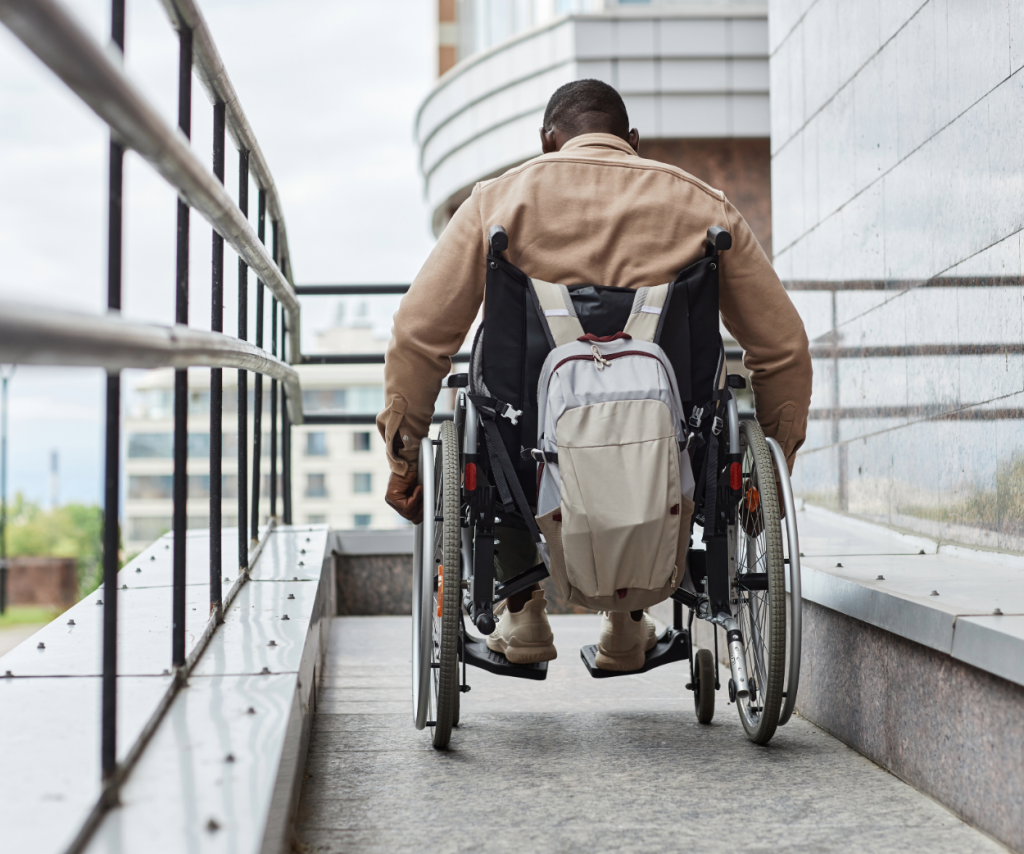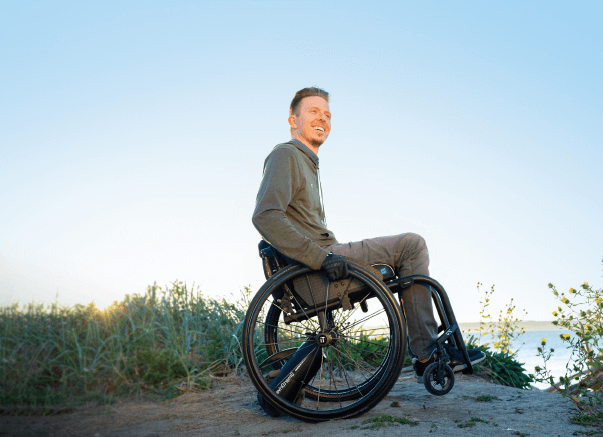A Breath of Fresh Air
Navigating the Transition from High School to College for Wheelchair Users and Their Parents
Just a few weeks into his freshman year of college, Alex Johnson is enjoying the independence of this new season of life.
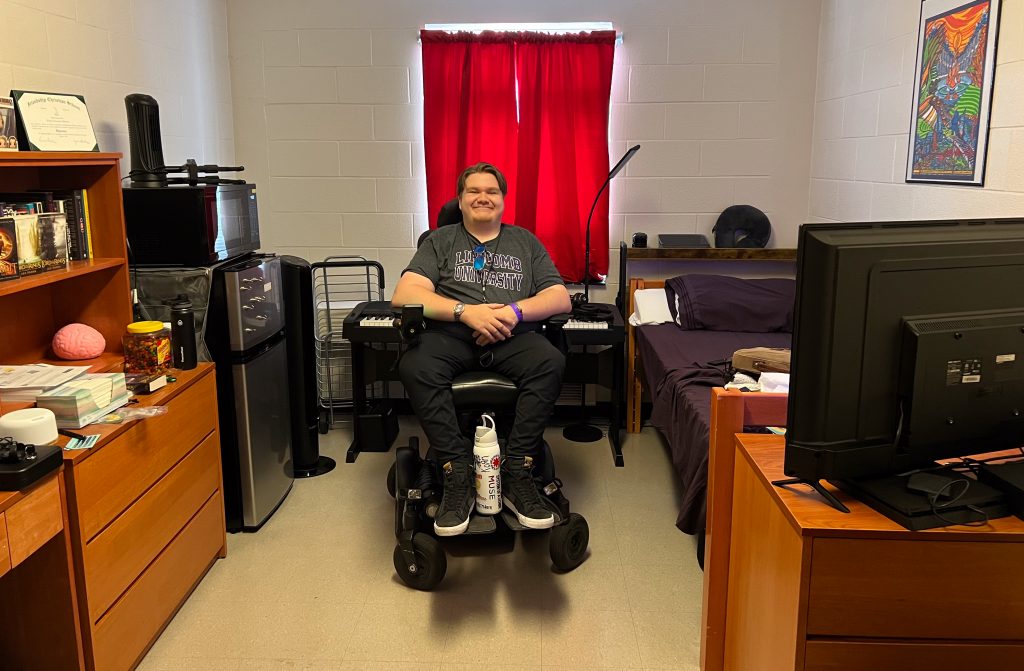
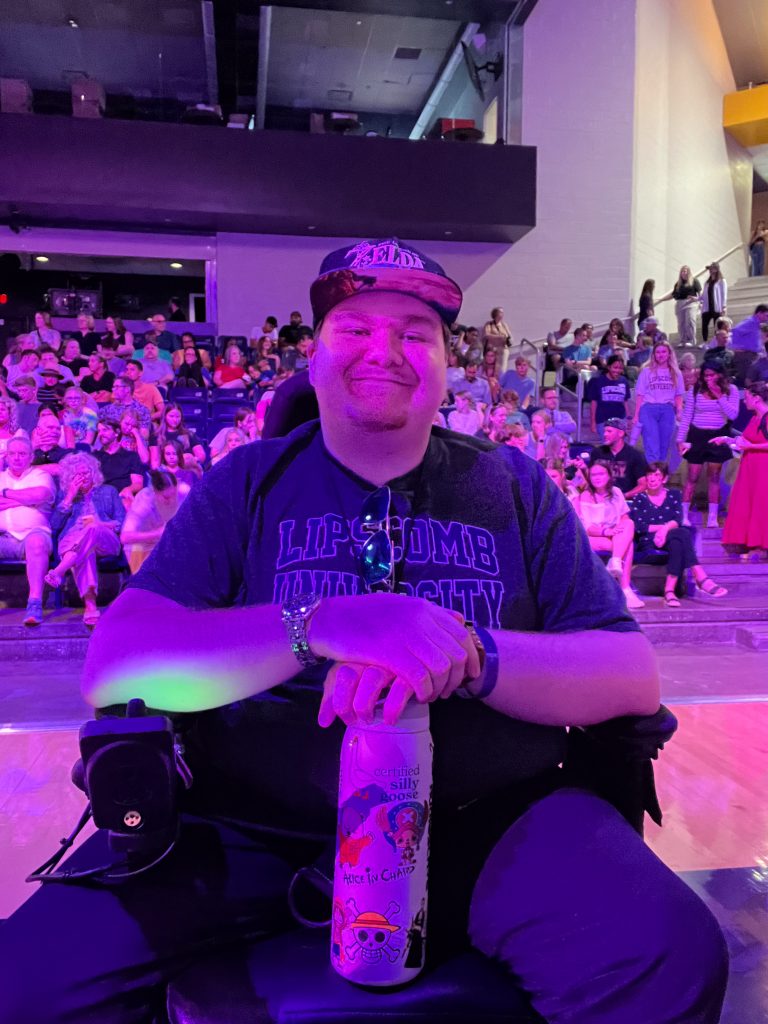
“Everything’s going great,” the 19-year-old says. “My classes are a little challenging, but that’s nothing that I didn’t expect going into college. I’m enjoying the independence aspect of it. I’m able to be my own person and take on my own tasks.”
While Alex is enjoying his college experience, the transition from high school to college can be challenging—for parents and students alike. Students have to navigate greater independence and increased responsibility while parents must take a step back and allow their children to make decisions for themselves.
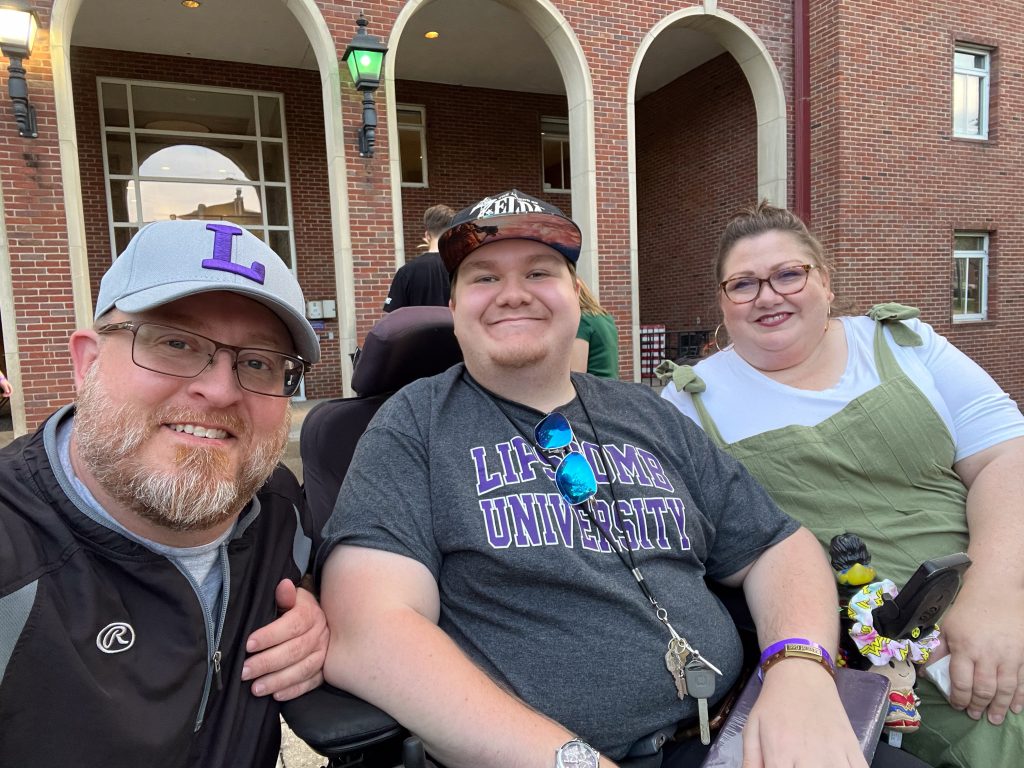
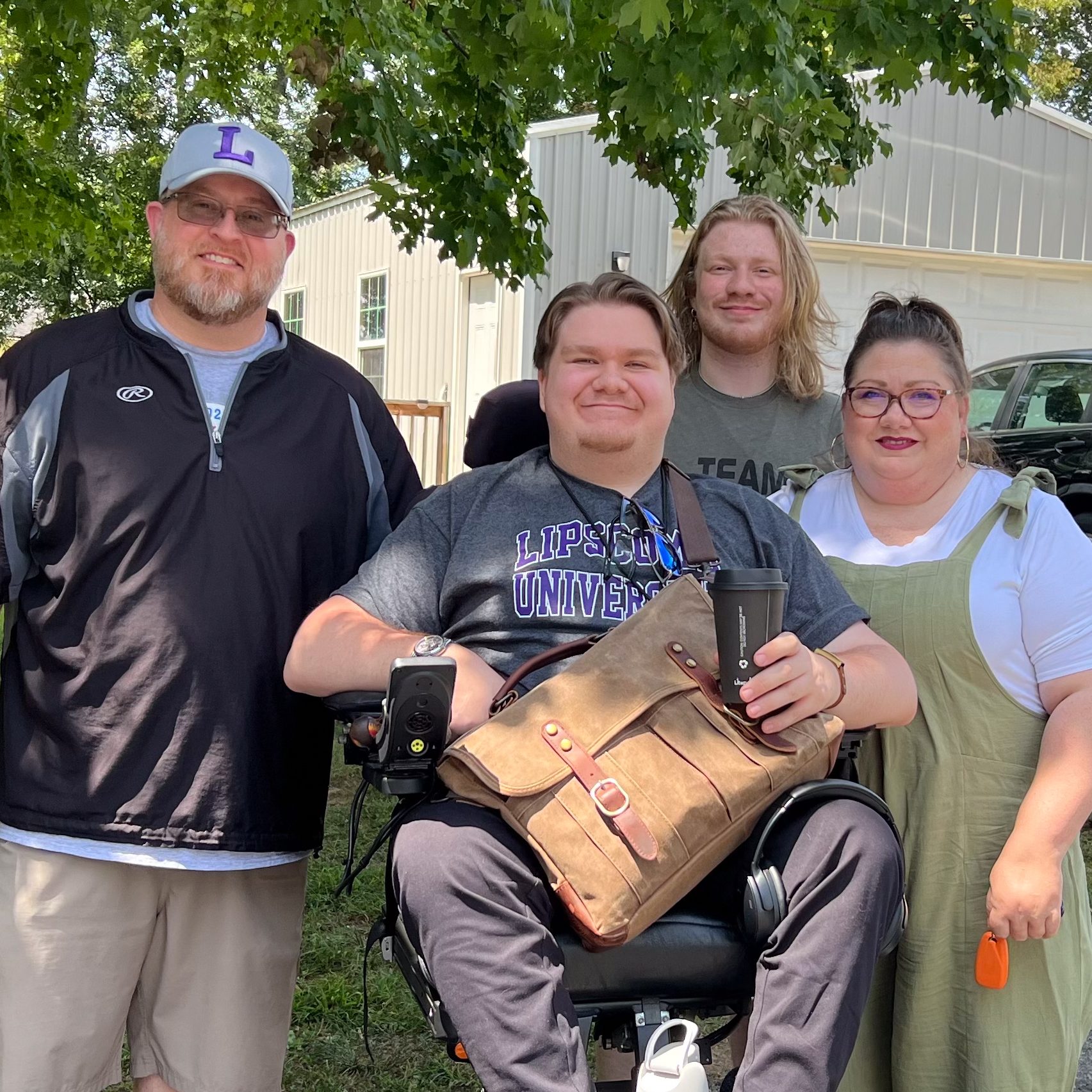
It’s a stressful transition for all parents, but especially for parents of children with a disability. Alex has used a wheelchair since he was about six, and his dad, Nathan Johnson, says watching his son head off to college has been a season full of competing emotions.
“There were lots of emotions throughout Alex’s senior year, but when it came time to move him and leave him at Lipscomb, that’s when my emotions ran extremely high,” Nathan recalls. “There was some anxiety and sadness, but all that faded when I realized that he is happy in his new environment.
“The biggest transition for me is getting used to the idea of not being right there if he needs help,” Nathan continues. “Like many other parents working through this transition, you realized that you have been preparing your children for this stage in life. Now it’s time to let go and let them soar. In our case, we had a few extra layers to deal with in preparing Alex for college.”
Making the College Decision
For Alex and his family, Alex’s college decision began with touring colleges and universities. Knowing he’d be rolling across campus multiple times a day, Alex wanted to make sure he was comfortable managing the campus, including classroom buildings, residence halls and simply navigating sidewalks and pathways.
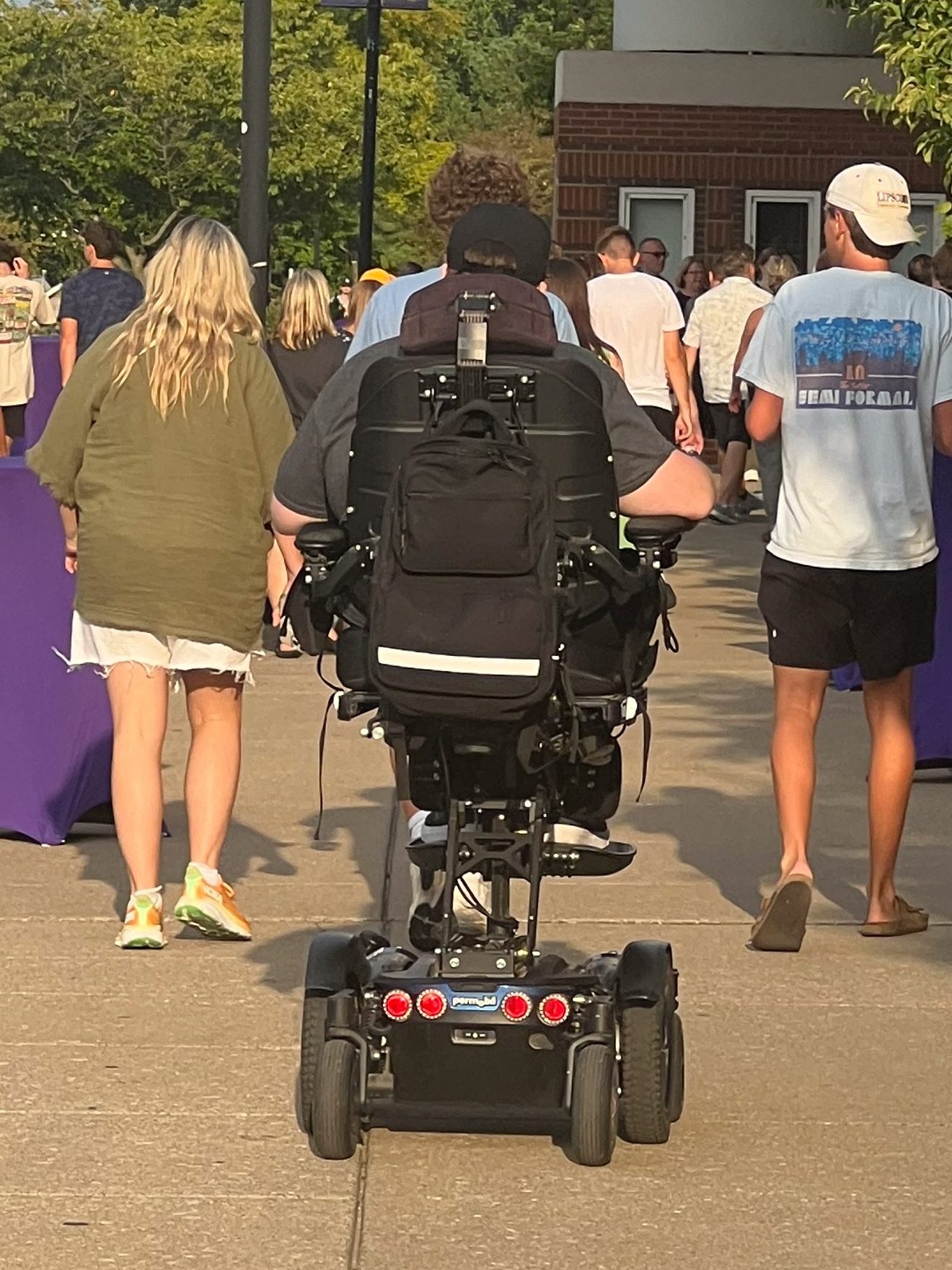
“We started the process on the initial campus visits at different schools,” Nathan recalls. “We wanted to see who was ready and who wasn’t ready for a wheelchair user.”
“Looking at the small details” down to the way Alex was included—or in some cases, excluded—from campus tours with other prospective students helped the Johnsons navigate Alex’s final decisions about where to attend college.
“Once Alex decided to attend Lipscomb,” Nathan says, “the thought process went toward making his transition as smooth as possible.”
For the Johnsons, that meant starting the conversation with Lipscomb University’s Office of Accessibility and Learning Support. Dr. Misty Parsley serves as the office’s executive director.
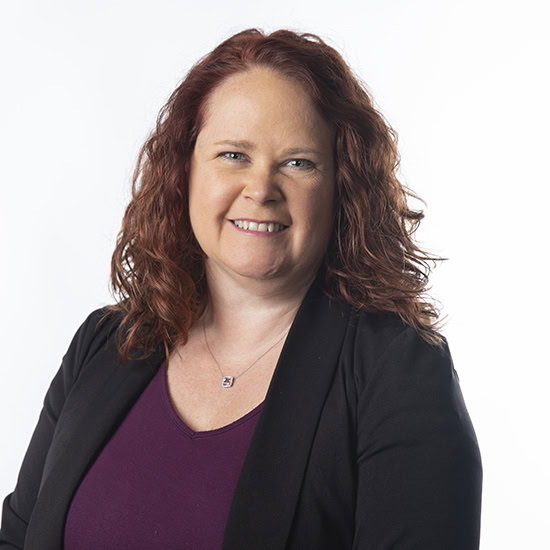
“I had gotten to know Alex pretty well because he’d been on campus for two years doing his wheelchair challenge, and I’d gotten to know his dad,” Dr. Parsley says. “When he came, I told him, ‘Our campus is not perfect, and we’re still learning, so you have to be willing to communicate with me about what you need.’”
Dr. Parsley’s words built upon a foundation Alex’s parents had started putting in place since he was young.
“We raised Alex to be as independent as possible,” Nathan says. “We also raised him to know that it’s OK to ask for help, and it’s OK to advocate for yourself by offering a suggestion that may be helpful for wheelchair users. The majority of people are willing to help; they just need to be educated on the specific needs of wheelchair users.”
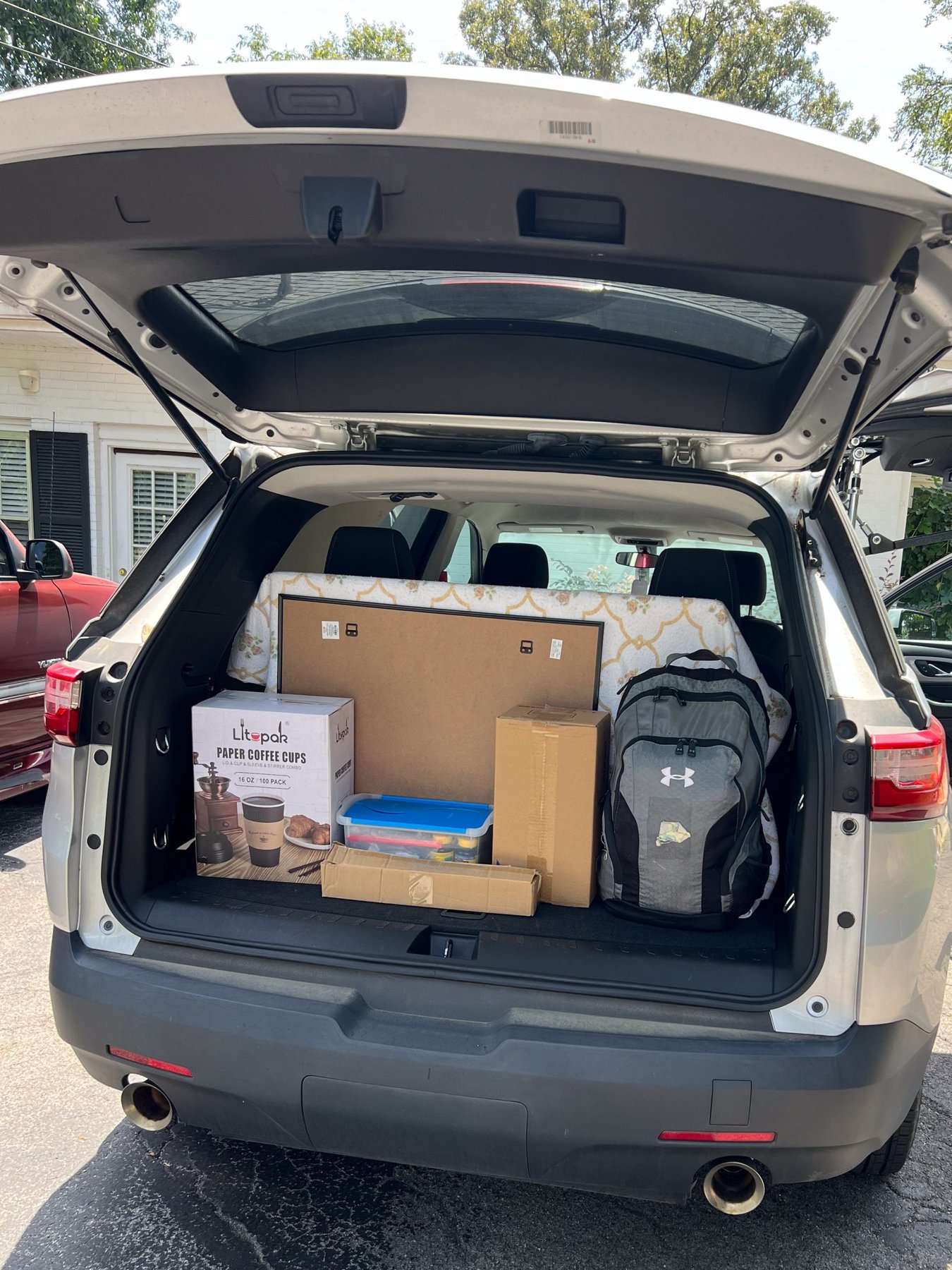
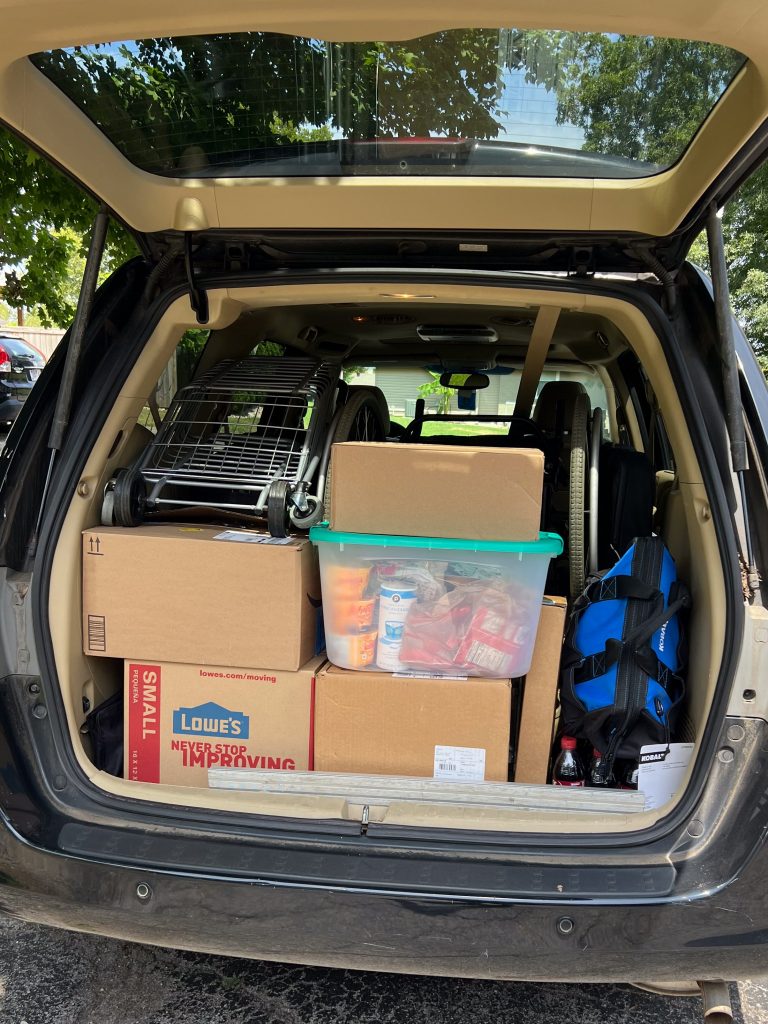
Planning for Alex’s Move
Keeping the lines of communication open with Lipscomb was vital for the Johnsons as they began to prepare for Alex’s freshman year. The summer before Alex started his freshman year, the family set up meetings with different departments across campus including the Office of Accessibility and Learning Supports as well as housing, financial aid and food services.
“With a wheelchair user in the family, we have learned to plan everything,” Nathan says. “Moving to college took a lot of planning, so, parents, start early.”
Planning for all possible scenarios is something Alex and his family have been doing for most of his life, and heading to college was no different. The family arranged for a visit to a residence hall to take measurements and ask a lot of questions that helped them make informed decisions about Alex’s on-campus living situation.
“I use both a manual and power wheelchair for my day-to-day,” Alex says. “So, living with another person in a small dorm room probably wasn’t going to be doable. My mom was worried that with a private room I wouldn’t get out and meet people, but that hasn’t happened. I’m a people person, and I enjoy being around others and sharing community.”
For Nathan, talking through common tasks and the accessibility aids Alex might need to complete them on his own was another moment of transition. The family worked through the daily tasks of Alex’s life to make sure he could live as independently as possible.
“Bringing the closet rods down to his level, using command hooks to make drawer pulls or openers, elevating furniture so he can get his wheelchair under the desk—those are all things we had to think about,” Nathan says.
The Johnsons also had to think through all the what-ifs, which often turned into conversations with Dr. Parsley and her team.
“What if the power goes out?” Nathan asks. “What if Alex is on an upper floor of a building, how does he get down? Is there an accessible bathroom in the building? These are all questions Alex had to think through and advocate for to develop plans. Thankfully, Lipscomb has been wonderful at helping us get everything lined up.”
Enjoying the New Season
While Nathan is excited to see his son thrive in this new, more independent season of life, the transition—and the conversations they’ve had to have because of it—haven’t always been easy.
“We’ve really let Alex take the lead on the college process,” Nathan says. “When questions have come up, we’ve worked through them, but the conversation that always bothers me is the one about not being able to always go where your friends go or do the things they do.
“We all know that the American Disabilities Act (ADA) requires the bare minimum, so this leads to places, especially older businesses and buildings, that aren’t accessible,” Nathan continues. “If Alex can get in the door, can he get to a table? Use the restroom? Get to where his friends are sitting?”
But as Alex closes in on the end of his first semester of college, he couldn’t be happier. He’s been able to make friends, learn a lot (about himself and his major) and stretch his wings a bit. If he could give any advice to his younger self, it would be simple:
“College is going to be a lot better for you than high school,” he says. “I’m just really enjoying my time here at college. It’s been a breath of fresh air.”
More Stories
Related Articles
5 Things to Know as You Start the New CRT Equipment Process
When it’s time to get new complex rehabilitation technology (CRT) equipment, the process can feel overwhelming. Even if you’ve been through the experience before, it’s…
National Seating & Mobility Takes the Hassle Out of Managing Medical Supplies
We work with your insurance, healthcare providers and top manufacturers to keep your supplies coming — seamlessly. For caregivers and those who rely on home…
Did You Know: Temporary Wheelchair Replacement Coverage
Did You Know: Most commercial insurance carriers don’t cover loaner equipment for CRT users? It’s common to expect a loaner or rental car coverage when…
